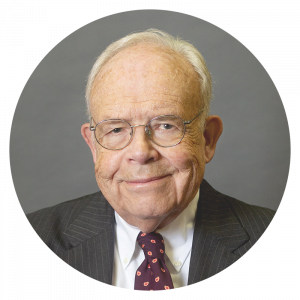By: SPENCER G. NAUMAN, JR.
 With college tuitions rising, employers think of scholarships for children of employees as a way to help. Employers are often dissuaded from establishing such scholarships because the scholarships would be included in the parent employee’s compensation. There is what amounts to a presumption that scholarships for children of employees are compensation for the employees.
With college tuitions rising, employers think of scholarships for children of employees as a way to help. Employers are often dissuaded from establishing such scholarships because the scholarships would be included in the parent employee’s compensation. There is what amounts to a presumption that scholarships for children of employees are compensation for the employees.
In fact, there is a way for an employer to finance scholarships for children of employees without having the scholarships included in the income of employees. In order to avoid being compensation, a scholarship grant must meet the requirements of Section 117 of the Internal Revenue Code of 1986 (“IRC”). Nonprofit corporations, especially community foundations, can help here.
IS AN INDEPENDENT ADMINISTRATOR NECESSARY?
Generally, because of the complex rules, it will be necessary to have an entity other than the employer administer the scholarship. Further, if there is to be an advisory selection committee, it must be either appointed by the sponsoring, administering entity or not controlled directly or indirectly by the employer to avoid the imposition of a federal excise tax on taxable distributions .
Community foundations which administer many scholarship programs with special conditions are ideally suited to administer employee scholarships. A requirement of a community foundation scholarship, in most cases, is that those scholarships be awarded only on a demonstration of financial need. Such a requirement is a good idea given the presumption described above.
ARE THERE OTHER REQUIREMENTS?
Just having a third party administer a program for scholarships for children of employees of a donor employer does not in itself insulate the employees from having the scholarships included in their compensation. However, in Rev. Proc. 76-47, as later amplified and modified, the IRS provides guidelines which would allow grants from a scholarship program for children of employees not to be considered compensation of the employees. The @safe harbor@ developed by the IRS has a test consisting of two (2) parts – a facts and circumstances test and a percentage test. The following are the IRS guidelines for employer-related scholarship programs in Rev. Proc. 76-47:
- The program cannot be used as an inducement to employment or continued employment.
- A selection committee must consist wholly of individuals totally independent of the employer. Former employees are not considered totally independent. ( The Additional independence rules of IRC Section 4966 also apply as discussed above).
- The program must impose identifiable minimum, substantial, objective requirements for grant eligibility which must be completely unrelated to the employment of the recipients or their parents and to the employer’s line of business and which are at least the minimum standards for educational institutions for grants that are available.
- Selection of grant recipients by a selection committee must be based solely on the minimum standards although the committee may add interviews, tests, outside recommendations and financial need (usually required by administering entity as discussed above).
- The grant may not be terminated because the recipient or the recipient’s parent terminated employment with the employer subsequent to the awarding of the grant, regardless of the reason for termination.
- The course(s) of study for which grants are available must not be limited to those that would be of particular benefit to the employer, and the recipient must have a free choice in the pursuit of a course of study.
- Recipients must be enabled to obtain an education solely for their personal benefit. No commitments, understandings, conditional or unconditional, that would accomplish any objective of the employer, may be attached to the award.
- The number of grants awarded cannot exceed 25% of the number of employees’ children who were eligible, were applicants, and who were considered OR 10% of employees’ children who were eligible, regardless of whether they applied.
Spencer G. Nauman Jr., is the senior partner of the Harrisburg law firm Nauman, Smith, Shissler and Hall, LLP, Harrisburg’s oldest law firm. Mr. Nauman has been a lawyer with the firm for more than 40 years and his primary practice areas are corporate, probate/estate planning, taxation and insurance. Mr. Nauman represents several community foundations and the state community foundation organization. He is serving or has served as Director and President of community health, educational and social service organizations.
Reprinted with permission.
CONNECT WITH US
We can help your clients give strategically, intentionally, purposefully and EASILY, while also helping them to maximize their tax savings. Give us a call at 717.236.5040 or email us at philanthropy@tfec.org.
.
